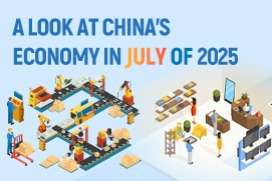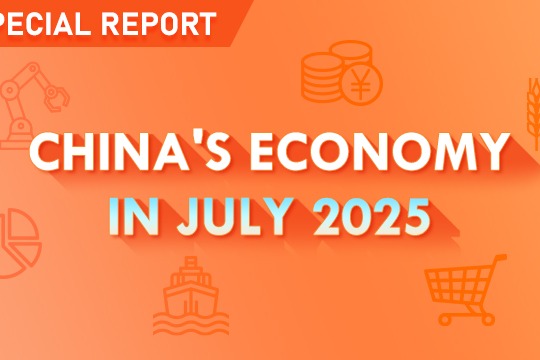RCEP members encouraged to harmonize rules
Alignment needed to support healthy growth of supply chain, experts say


Members of the Regional Comprehensive Economic Partnership can further improve the alignment of operational guidelines across key sectors such as competition policy and trade in services to elevate mutual openness, said trade experts and foreign scholars on Sunday.
Speaking at a forum in Haikou, capital of Hainan province, they said that in the context of the uncertain global geopolitical landscape and trade protectionism, these measures are practical to tackle the weaponization of tariffs and support the growth of a healthy supply chain in the Asia-Pacific region.
Further harmonizing their rules and policies in areas such as government procurement, rules of origin, cross-border e-commerce, customs procedures, financial cooperation and resource flows will help facilitate the free flow of economic elements among member countries, said Yu Hongjun, former deputy head of the International Department of the Communist Party of China Central Committee.
"This alignment promotes the liberalization and facilitation of trade and investment within the region, enhancing regional economic integration," said Yu, adding it will also drive global investment and trade activities, pushing the international community toward a new era of stable economic globalization.
Sharing similar views, Xue Lan, dean of Schwarzman College at Tsinghua University, stressed that fostering the digital economy and establishing robust digital trade frameworks are paramount.
"Enhancing mechanisms for cross-border data flows to improve both efficiency and security are essential," Xue said, noting that while trade agreements significantly bolster the goods trade, easing the exchange of underlying data also plays a critical role and can profoundly influence trade dynamics.
Given the large population and the vast amounts of data in the RCEP region, which includes 15 countries from China to New Zealand, it is essential to proactively develop new digital business models and create international data service industry clusters, he added.
Thanks to favorable tariff policies and simplified customs procedures, along with their complementary trade structures, foreign trade between China and the other 14 RCEP countries amounted to 3.08 trillion yuan ($425.56 billion) in the first quarter of this year, growing by 2.7 percent year-on-year. This accounted for 30.3 percent of China's total trade value, data from the General Administration of Customs showed.
Eager to promote substantial economic and trade cooperation with neighboring countries, China has held a number of talks with related parties on the third version of the China-ASEAN Free Trade Area agreement and the China-Japan-South Korea free trade agreement, according to China's Ministry of Commerce.
Yan Liang, deputy secretary-general of the Seoul-based Trilateral Cooperation Secretariat, an international organization promoting common prosperity among China, Japan and South Korea, said that all RCEP member countries should collaborate closely and uphold the principles of multilateralism.
This will further enhance the standards and rules for the liberalization and facilitation of goods and services trade and investment, Yan said.
In addition to cooperation in traditional economic sectors, he said there should be a focus on investments in new economic areas, particularly in the digital economy, as well as in the green and blue economies and the wellness industry.
Echoing that sentiment, Kim Heung-chong, a distinguished professor at the College of International Studies of Seoul-based Korea University, said as member economies have many unilateral and bilateral free trade agreements within the RCEP, they need to further increase market openness.
"Sometimes, it involves not only cutting tariffs, but also factors like certifications and subsidies play a role," Kim said.
"The RCEP can play a significant role in stabilizing economic development, especially as many countries in the Asia-Pacific region are dealing with protectionism and avoiding trade wars," said Nguyen Huy Hoang, dean of the faculty of economics at the Vietnam Graduate Academy of Social Sciences.
This mega free trade deal can help member economies achieve post-pandemic recovery and promote long-term economic growth, as well as foster regional peace, stability, harmony and prosperity, he added.




































